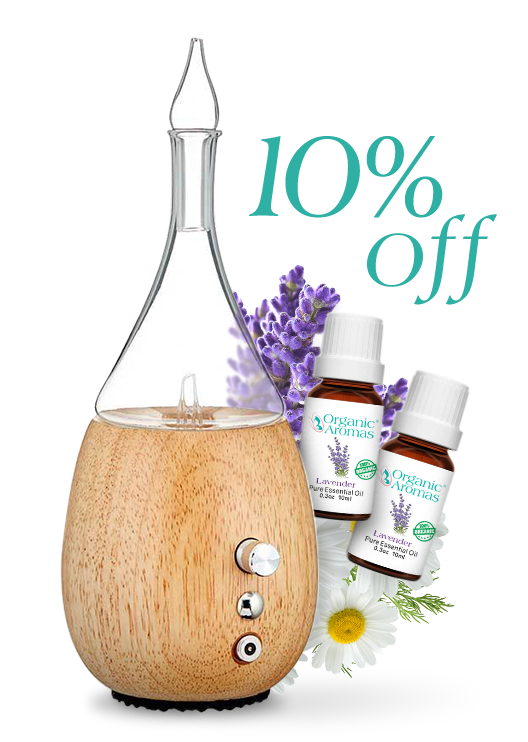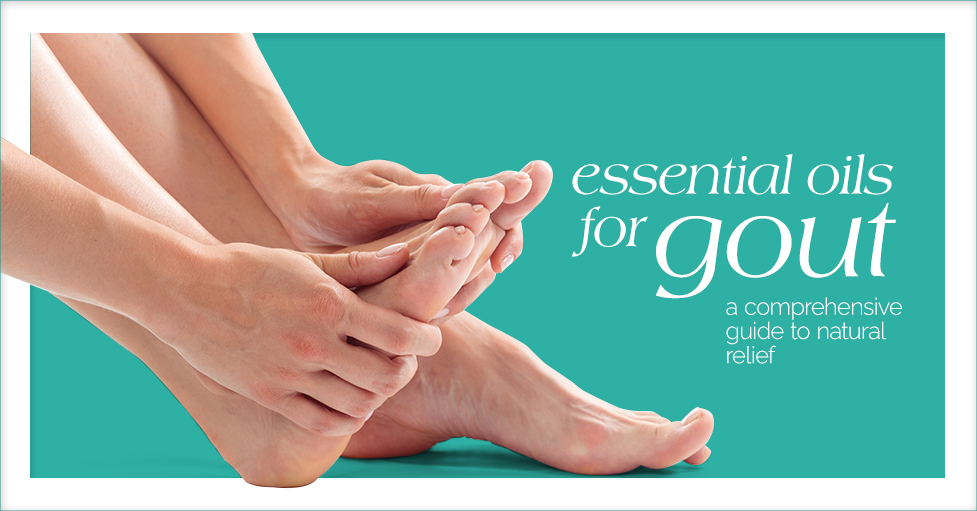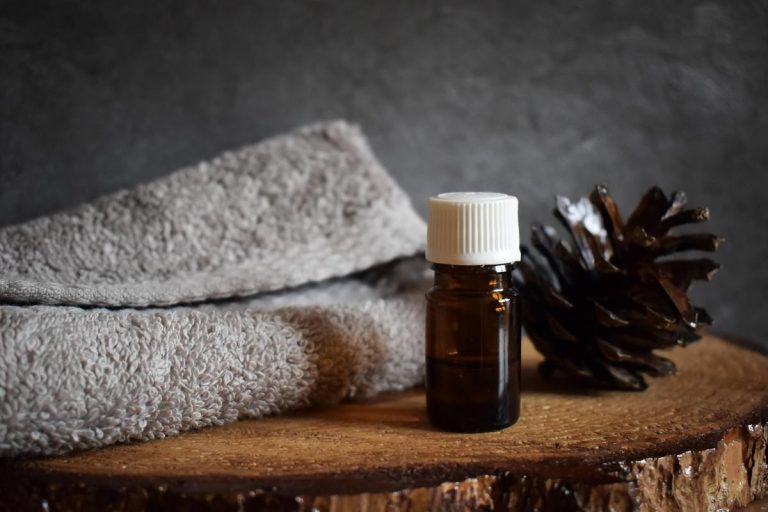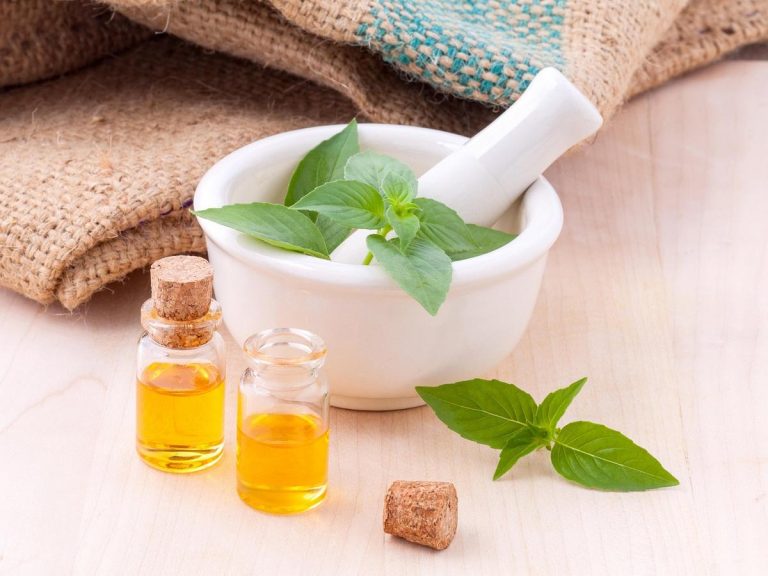Essential Oils for Gout: A Comprehensive Guide to Natural Relief
Gout, a form of inflammatory arthritis, is caused by the buildup of uric acid crystals in the joints, leading to intense pain, swelling, and redness. In this comprehensive guide, we’ll explore how essential oils can really provide natural relief for gout sufferers. We’ll cover the benefits of using essential oils for gout, lesser-known remedies, potential side effects, complementary therapies, and lifestyle changes to manage this complex ailment more effectively.
Causes and symptoms of gout
Gout is a painful form of arthritis caused by the buildup of uric acid crystals in the joints. It is a byproduct of purine metabolism, a natural substance found in many foods. Normally, the acid dissolves in the blood and gets eliminated through the kidneys. However, when the body produces too much uric acid or the kidneys are unable to excrete it efficiently, it can accumulate in the blood, forming crystals that settle in the joints and cause inflammation.

The symptoms of gout usually appear suddenly and can be quite severe. Common symptoms treating gout include:
- Intense joint pain, especially in the big toe, but also in other joints like ankles, knees, elbows, wrists, and fingers.
- Swelling and redness around the affected joint.
- Limited range of motion due to stiffness and pain.
- Warmth and tenderness in the joint.
For example, imagine waking up in the middle of the night with a throbbing, burning pain in your big toe, feeling like it’s on fire. That’s what a gout attack can feel like, and it can last for several days or even weeks.
Risk factors for developing gout
There are various risk factors that can increase your chances of developing gout. Understanding these factors can help you identify whether you might be at risk and take appropriate preventive measures. Some common risk factors include:
- Genetics: A family history of gout increases the likelihood of developing the condition.
- Age and gender: Gout is more common in men than women and usually occurs in middle-aged or older individuals.
- Diet: Consuming foods high in purines, such as red meat, seafood, and alcohol, can increase uric acid levels.
- Obesity: Excess body weight can make it harder for the kidneys to eliminate uric acid.
- Medical conditions: Kidney disease, diabetes, high blood pressure, and metabolic syndrome can contribute to the development of gout.
- Medications: Some medications, such as diuretics and low-dose aspirin, can increase uric acid levels.

The Different Stages of Gout
Gout progresses through four distinct stages, each with its own characteristics and symptoms. Recognizing these stages can help you manage the condition more effectively.
- Asymptomatic hyperuricemia: In this initial stage, uric acid levels are elevated, but there are no symptoms. At this point, treatment may not be necessary, but it’s essential to monitor uric acid levels and make lifestyle changes to prevent gout from developing.
- Acute gout attack: This stage occurs when uric acid crystals trigger a sudden and severe inflammatory response, resulting in intense pain, swelling, and redness in the affected joint. Acute attacks typically last a few days to weeks and require medical treatment to manage pain and inflammation.
- Intercritical gout: This period between gout attacks is characterized by the absence of symptoms. However, uric acid crystals can still accumulate in the joints, causing damage over time. Preventive measures, such as medication and lifestyle changes, can help reduce the frequency of future attacks.
- Chronic gout: In this advanced stage, attacks become more frequent, and joint damage may become permanent, leading to chronic pain and limited mobility. Early diagnosis and treatment are crucial in preventing the progression of gout to this stage.
Understanding the causes, symptoms, risk factors, and stages of gout is essential for effectively managing the condition. By being proactive in your approach, making necessary lifestyle changes, and seeking appropriate medical treatment, you can significantly improve your quality of life and reduce the impact of gout on your daily activities.
Conventional Treatments for Gout
While this guide primarily focuses on natural remedies for treating gout attacks, it’s essential to understand the conventional treatments available, as they can often be the first line of defense against gout symptoms. However, it’s important to note that these treatments may come with potential side effects and risks. As a result, a holistic approach that combines conventional medicine with natural remedies and lifestyle changes can provide the most effective and well-rounded gout management strategy.
Medications for gout relief
Conventional treatments for gout primarily involve medications that help manage pain and inflammation, as well as reduce uric acid levels in the blood. Common medications to treat gout include:
Nonsteroidal anti-inflammatory drugs (NSAIDs):
These medications, such as ibuprofen or naproxen, help reduce pain and inflammation during a gout attack. However, long-term use of NSAIDs can lead to gastrointestinal issues, kidney damage, and an increased risk of cardiovascular events.
Colchicine:
This anti-inflammatory drug is used for acute gout attacks and can be effective when taken at the first sign of symptoms. However, colchicine can cause side effects like nausea, vomiting, and diarrhea.
Corticosteroids:
These medications, such as prednisone, can be taken orally or injected directly into the affected joint to provide rapid relief from gout symptoms. Long-term use of corticosteroids can lead to weakened bones, increased risk of infection, and other adverse effects.
Uric acid-lowering medications:
Drugs like allopurinol and febuxostat help reduce the production of uric acid, while probenecid improves kidney function to eliminate excess uric acid. These medications can prevent future attacks but may cause side effects like rash, liver toxicity, and kidney stones.
Potential side effects and risks of conventional treatments
You should know conventional gout treatments can come with potential side effects and risks. For instance, long-term use of NSAIDs can lead to gastrointestinal problems, while colchicine may cause gastrointestinal distress. Additionally, uric acid-lowering medications can sometimes cause rashes or liver toxicity.

Given these potential risks, it’s essential to (also) explore a holistic approach to gout management that combines conventional treatments with natural remedies like essential oils and lifestyle changes. By adopting such an approach, you can minimize the risk of side effects, improve overall joint health, and effectively manage gout symptoms.
How Essential Oils for Gout Work in Alleviating Symptoms
Essential oils are natural remedies derived from plants, offering a range of therapeutic benefits. In the context of gout management, they can play a significant role in alleviating symptoms and improving overall joint health. To understand how they help with gout, it’s essential to examine their key properties and how they target specific aspects of the condition. Let’s dive into the various ways essential oils can provide relief for gout sufferers.
- Anti-inflammatory properties
One of the main issues with gout is the inflammation that occurs when uric acid crystals form in the joints. Essential oils with anti-inflammatory properties can help reduce this inflammation, providing relief from symptoms like swelling, redness, and tenderness.
For example, frankincense and lavender are known for their potent anti-inflammatory properties. When applied topically (diluted with a carrier oil), these oils can help reduce inflammation in the affected joint and provide relief from gout symptoms.
- Pain-relieving effects
Gout attacks can cause severe pain, which can be debilitating and impact daily activities. Essential oils with analgesic (pain-relieving) properties can help alleviate this pain, providing a more natural and safer alternative to over-the-counter pain medications.
For instance, peppermint essential oil contains menthol, a compound known for its cooling and pain-relieving effects. Applying diluted peppermint oil to the affected joint can create a cooling sensation that numbs the pain and provides immediate relief. Similarly, ginger essential oil contains gingerol, which has been shown to have analgesic properties, making it effective in reducing and treating gout pain and-related pain.
- Uric acid reduction
While essential oils are not a direct solution for reducing high uric acid levels already in the body, they can support overall health and wellness, which may indirectly help manage the issue. Some of the best essential oils for gout, like lemon and juniper berry, are believed to support kidney function and help with detoxification, promoting the elimination of excess acid from the body.
For example, after discussing the matter with your physician or a certified aromatherapist, adding a few drops of lemon essential oil to your water or using juniper berry or ginger essential oil while in a relaxing bath can provide a gentle detox effect, supporting the body’s natural ability to flush out excess uric acid.
Essential oils can be a valuable addition to your gout management plan, thanks to their anti-inflammatory, pain-relieving, and detoxifying properties. By incorporating them into your daily routine and combining them with other gout treatments and lifestyle changes, you can effectively manage gout symptoms and improve your overall joint health. Remember to consult a healthcare professional before using essential oils for gout, as individual needs and responses to these natural remedies may vary.

Join Our Exclusive Member Club to get Big Discounts!
Essential Oils for Gout Relief
Essential oils can be an effective complementary therapy for gout relief due to their unique chemical compositions and therapeutic properties. Each essential oil has a distinct set of active compounds that target specific aspects of gout, such as inflammation, pain, and uric acid elimination. Here, we’ll discuss the science behind the most commonly recommended essential oils for gout relief and how their unique properties contribute to their effectiveness in addressing gout symptoms.

Lemongrass oil
Lemongrass oil contains citral, an active compound known for its anti-inflammatory and antioxidant properties. This helps reduce inflammation and oxidative stress associated with gout. Additionally, lemongrass oil has analgesic effects that can alleviate pain during a gout flare-up.
Celery seed oil
Celery seed oil is rich in compounds like limonene and linalool, which possess anti-inflammatory and pain-relieving properties. Moreover, celery seed oil is believed to support kidney function and help with detoxification, promoting the elimination of excess uric acid from the body.
Yarrow oil extract
Yarrow oil extract contains compounds like chamazulene and alpha-pinene, which exhibit potent anti-inflammatory and analgesic effects. This makes yarrow oil extract a powerful option for reducing inflammation and pain.
Olive leaf extract
Olive leaf extract contains oleuropein, a potent antioxidant and anti-inflammatory compound. This helps reduce inflammation and oxidative stress in the joints affected by gout. This is not an “essential oil” per se, but it does take the form of dietary supplement. Furthermore, using olive oil, and most importantly, its’ leaf extract has been shown to support overall cardiovascular health, which can be beneficial for individuals with gout, as they often have an increased risk of cardiovascular issues.
Biota orientalis (Thuja orientalis)
Biota orientalis, also known as Thuja orientalis (Chinese Cedarwood), is a traditional Chinese medicine used for its anti-inflammatory and analgesic properties. The active compounds in this extract, such as flavonoids and terpenoids, help reduce inflammation and alleviate pain during gout flare-ups. This does occur in essential oil form.
Ginger extract
Ginger extract is rich in gingerols, which are known for their anti-inflammatory and analgesic properties. By reducing inflammation and providing pain relief, ginger extract can help manage gout symptoms. Additionally, ginger extract has been shown to support digestive health, which can indirectly help with gout pain relief and management.
Chinese Cinnamon
Chinese cinnamon, also known as cassia cinnamon, contains cinnamaldehyde, a compound with potent anti-inflammatory and analgesic properties. This makes Chinese cinnamon an effective option for reducing inflammation and pain.
Additionally, Chinese cinnamon has been shown to support healthy blood sugar levels, which can be beneficial for individuals with gout, as they often have an increased risk of developing type 2 diabetes.
The most important takeaway here is that these essential oils and extracts provide relief from gout symptoms due to their unique chemical compositions and therapeutic properties. By understanding the science behind their effectiveness, you can make informed decisions about which ones to incorporate into your gout management plan.
Lesser-Known Essential Oils for Gout
While some essential oils are widely recognized for their benefits in gout management, there are many lesser-known options that can also provide relief. These can be grouped based on their primary benefits:
Anti-inflammatory essential oils
Inflammation is a significant factor in gout flare-ups, so an essential oil blend of oils with anti-inflammatory properties can be beneficial in managing symptoms. Some lesser-known oils include:
Frankincense essential oil: Rich in boswellic acids, it has potent anti-inflammatory effects.
Rosemary essential oil: Contains compounds like ursolic acid and carnosol. This is what makes rosemary oil help reduce inflammation.
Birch essential oil: Rich in methyl salicylate, it helps alleviate inflammation and joint pain.

Pain-relieving essential oils for gout
Gout flare-ups can cause intense pain, making pain relief essential. The following lesser-known essential oils possess analgesic properties:
Thyme essential oil: Contains thymol and carvacrol, which help alleviate pain and inflammation.
Chamomile essential oil: Rich in chamazulene and has strong pain-relieving effect. Chamomile oil is also known for anti-inflammatory properties as well.
Basil essential oil: Contains eugenol, a compound known for its analgesic and anti-inflammatory properties.
Uric acid reduction essential oils
Reducing your levels is crucial for gout management. These lesser-known ones can help as well:
Lemon essential oil: Contains limonene, which supports detoxification and can help eliminate the substance.
Fennel essential oil: Rich in anethole, it has diuretic properties that may help flush out excess uric acid.
Multi-purpose essential oils
Some essential oils for gout offer a combination of anti-inflammatory, pain-relieving, and uric acid reduction properties. These lesser-known, versatile and very potent essential oils include:
Peppermint essential oil: Contains menthol, which provides pain relief, and has anti-inflammatory and mild diuretic effects.
Cypress essential oil: Offers pain-relieving and anti-inflammatory properties and supports healthy blood circulation.
Lavender essential oil: Known for its calming effects, it also has anti-inflammatory and analgesic properties.
Wintergreen essential oil: Contains methyl salicylate, which has both pain-relieving and anti-inflammatory effects. Do note that pure methy salicylate is posionous and can have harmful effects. Do consult with a doctor or licensed aromatherapist before use.
Pine essential oil: Offers anti-inflammatory, analgesic, and detoxifying properties.
Clove essential oil: Rich in eugenol, it has potent pain-relieving and anti-inflammatory effects.
Eucalyptus essential oil: Provides pain relief, reduces inflammation, and supports detoxification.
While these other essential oils may be lesser-known, their unique properties make them valuable options for gout relief.

Join Now and Get a Coupon for 10% Off!
How to Use Essential Oils for Gout
Incorporating them into your daily routine can help manage gout symptoms effectively. Here are some practical methods to use the best essential oils for gout relief, along with complementary therapies and lifestyle changes that can enhance their benefits.
- Hot towel compress
A hot towel compress can help soothe painful joints and enhance the penetration of essential oils into the affected area.
- Mix 3-5 drops of your chosen essential oil with a carrier oil (e.g., coconut or almond oil).
- Apply the blend to the affected area.
- Soak a towel in hot water, wring it out, and place it over the area.
- Leave the compress on for 10-15 minutes to allow the essential oils to penetrate and work their magic.
- Soothing massage blends
Massaging essential oil blends into the affected joints can provide immediate relief and promote relaxation.
- Combine 3-5 drops of your chosen essential oil with a carrier oil.
- Gently massage the blend into the painful joint in circular motions.
- Repeat 2-3 times a day as needed.
- Foot bath/soak
A foot bath with essential oils can help alleviate pain and inflammation in the feet and toes.
- Fill a basin with warm water.
- Add 5-10 drops of your chosen essential oil and mix well.
- Soak your feet for 15-20 minutes, allowing the essential oils to work their magic.
- Epsom salt bath
Epsom salt baths can help reduce inflammation and soothe sore muscles, making them an excellent complementary therapy to essential oils for gout. Epsom salt, also known as magnesium sulfate. The magnesium component of Epsom salt is believed to provide relief. Magnesium plays a crucial role in many bodily functions, including nerve and muscle function, and has been known to exhibit anti-inflammatory properties.

- Fill a bathtub with warm water.
- Add 1-2 cups of epsom salt and 10-15 drops of your chosen essential oil.
- Soak in the bath for 15-20 minutes to enjoy the combined benefits of epsom salt and essential oils.
Additional Complementary Therapies and Lifestyle Changes
In addition to using essential oils, consider incorporating the following practices into your daily routine to help manage gout more effectively:
- Maintain a healthy diet: Avoid high-purine foods like red meat, seafood, and alcohol, which can trigger gout flare-ups. Focus on consuming more fruits, vegetables, whole grains, and lean proteins.
- Stay hydrated: Drinking plenty of water can help flush out excess acid and prevent the formation of crystals. Include green tea in your diet, as studies have shown that its constituents can lower the body’s uric acid production. Also, it is helpful to avoiding hot temperatures and limiting the amount the body sweats unnecessarily.
- Exercise regularly: Moderate, low-impact exercises like walking, swimming, or cycling can help maintain joint flexibility and support overall health.
- Maintain a healthy weight: Excess weight can put more pressure on your joints and increase the risk of gout attacks. Losing weight gradually through a balanced diet and exercise can help prevent gout flare-ups.
- Manage stress: Stress can exacerbate gout symptoms. Practice relaxation techniques like deep breathing, meditation, or yoga to help reduce stress levels.

Sign Up to Get Your FREE Essential Oils e-Book Here
Precautions and Potential Side Effects of Essential Oils
Any holistic health professional or licensed aromatherapist will tell you, it’s important to address potential risks and concerns associated with using essential oils for gout. While they offer numerous benefits, use them safely and responsibly. Here are some precautions and potential side effects:
Skin irritation and allergies: Perform a patch test, always dilute with a carrier oil, and avoid using on broken or inflamed skin.
Drug interactions: Consult your healthcare professional before using essential oils if you’re taking medications or have existing health conditions.
Safety concerns for pregnant and breastfeeding women: Consult your healthcare professional before using oils during pregnancy or breastfeeding.
Use in children and elderly individuals: Consult a qualified aromatherapist or healthcare professional for advice on appropriate dilution ratios and safe usage.
Quality and purity: Choose high-quality, pure, and organic essential oils from reputable suppliers.
Proper storage: Store your oils in dark, airtight containers, away from heat and direct sunlight. They can breakdown and go bad quickly if not stored correctly.
Ingestion: Consult a qualified aromatherapist or healthcare professional before considering oral consumption.
Complementary Therapies and Lifestyle Changes for Gout Management
In addition to using essential oils for gout relief, incorporating complementary therapies and making lifestyle changes can help manage gout symptoms more effectively.
Cold Therapy
Apply an ice pack wrapped in a towel to the affected joint for 15-20 minutes at a time, several times a day, to help reduce inflammation and numb the pain. Remember to never apply ice directly to the skin.
Elevating the Affected Area
Keep the affected joint elevated above the level of your heart whenever possible, especially during a gout flare-up. Use pillows or cushions to even the weight and prop up the limb, which can help minimize swelling and alleviate discomfort.
Assistive Devices
Use assistive devices such as a cane or walker to help take the pressure off the affected joint and reduce pain while walking. Wearing specially designed shoes, shoe inserts and socks can provide additional support and cushioning for your feet, making it more comfortable to walk and stand.
Additional suggestions for managing gout symptoms:
Natural Supplements
Consider taking supplements like vitamin C, which may help lower acid levels. Always consult your healthcare professional before starting any new supplement regimen.
Acupuncture
Acupuncture may help alleviate pain and inflammation associated with gout. Consult a licensed acupuncturist for personalized treatment plans.
Herbal Remedies
Some herbal remedies, like nettle, devil’s claw, and cherry extract, may help reduce inflammation and lower your acid levels. Consult your healthcare professional or a licensed herbalist before using herbal remedies.
Essential oils, when used correctly and in conjunction with conventional treatments, can offer natural relief for gout sufferers. By exploring the various oils available, understanding their benefits, and learning how to use them safely, you can better manage gout symptoms and improve your overall well-being.
Frequently Asked Questions (FAQs)
What is the best instant relief for gout?
The best instant relief for gout involves a combination of measures: taking over-the-counter anti-inflammatory medications (like ibuprofen), applying ice to the affected area, elevating the joint, and resting. Additionally, using essential oils such as lemongrass, peppermint, or lavender in a gentle massage or warm compress can help alleviate pain and inflammation.
What breaks down gout crystals?
Drinking plenty of water and maintaining a healthy diet low in purines can help your body naturally break down gout crystals. Additionally, certain natural remedies such as cherry juice or apple cider vinegar may aid in the breakdown of uric acid crystals. It’s essential to consult with a healthcare professional to determine the best course of action for your specific situation.
What is the easiest cure for gout?
There is no one-size-fits-all cure for gout, but managing the condition effectively involves a combination of conventional treatments, dietary changes, and lifestyle modifications. These include taking prescribed medications, maintaining a healthy diet low in purines, staying hydrated, exercising regularly, managing weight, and using complementary therapies like essential oils to alleviate symptoms.
What is the best tea to flush gout?
What is the best tea to flush gout?
Green tea is considered the best tea for flushing gout, as it contains compounds that help lower uric acid levels and reduce inflammation. Drinking several cups of green tea daily may help manage gout symptoms and prevent future flare-ups.
Related Articles
-

Top Glass Diffusers for Essential Oils: Enhance Your Aromatherapy Experience
-

Best Essential Oil for Earache: Effective Solutions and How to Use Them
-

Top Essential Oils for Obsessive Compulsive Disorder: Natural Remedies for Better Balance







